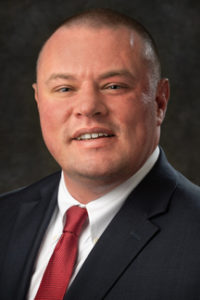Student Journalist Press Freedom Protection Act advances
By Autumn Shelton, WV Press Association
CHARLESTON, W.Va. – With only one day to go in the 2023 legislative session, members of the House of Delegates voted in favor of multiple bills, including one that will ban TikTok from government devices, one that provides exceptions for the disclosure of confidential records from correctional institutions, and one that provides legislators a pay raise.
The engrossed committee substitute for SB 426, which bans the popular app TikTok from government devices, is designed to “safeguard against untrustworthy” technology and block that technology from “interfering with or damaging critical state networks and infrastructure,” according to the bill.
“This bill requires West Virginia government entities to adopt and abide by the standards set forth by the Chief Information Security Officer, and stay up to date with federal law and regulations pertaining to cybersecurity threats,” said Del. Moore Capito, R-Kanawha.
The bill passed the House with 90 yes votes, before being communicated to the Senate.
The House also passed the committee substitute for SB 121, which creates the Student Journalist Press Freedom Protection Act.
As explained by Del. Tom Fast, R-Fayette, the bill requires “that public high schools, colleges and universities allow for the free expression of student journalists in school sponsored media.” The bill also sets the framework for what may not fall under freedom of the press, including any work that is obscene, libelous, an “actionable invasion of privacy,” “offensive to a reasonable person,” that violates the law, or that “incites students to engage in the commission of an unlawful act or acts.”
It passed the House with 95 yes votes.
Additionally, the House passed the committee substitute of SB 495, an amended version of a prior bill, that provides exceptions for the disclosure of confidential video and audio records from correctional institutions and juvenile facilities.
Following a question posed by Del. Mike Pushkin, D-Kanawha, about whether or not this bill would allow family members to obtain records through a Freedom of Information Act request, it was explained that their attorneys would be able to obtain the records if they “have a claim.”
The bill states that confidential records, including incident reports, investigation reports, witness statements, and documents that “would reasonably place the safety of an employee, inmate, or resident in jeopardy,” may be disclosed to the Secretary of the Department of Homeland Security, his or her designees, and the commissioner or his or her designees for official use,” to law enforcement, to the Juvenile Justice Commission, or “pursuant to a lawful order of a court of record or an administrative tribunal for use in a civil, criminal, or administrative matter.”
The bill passed with 96 yes votes, and was communicated to the Senate.
The committee substitute for SB 548, a bill that clarifies “what parties can redeem delinquent property and limiting those entitled to bid” was also passed by the House after moving through the Senate on Feb. 21.
Del. Fast explained the bill.
“This bill provides that lien holders, in addition to any person entitled to pay taxes as specified under current law, may redeem delinquent properties through the payment of outstanding taxes and interest,” Fast said. “Bidders at a public auction held by the Auditor are required to pre-register and cannot, at the time of registration, have failed to make payments from prior auction, or be delinquent in the payment of real property taxes to any county.”
Companies who wish to bid must be registered with the Secretary of State’s office and “authorized to conduct business in the state of West Virginia,” Del. Fast continued.
The House approved a Judiciary Committee amendment to allow a bidder to “execute an affidavit on the site of sale stating that they are in compliance with this section,” Fast noted.
An amendment proposed by Del. Heather Tully, R-Nicholas, which stated that “instead of the Auditor, a purchaser may engage a licensed attorney to provide a title examination at his or her own cost,” was also approved.
This bill passed with 88 yes votes after passing the Senate with 33 yes votes.
Also, after being initially voted down, SB 508, relating to reporting thresholds for grassroots lobbying campaigns, was passed after it made a return to floor debate following a request made by Del. Brandon Steele, R-Raleigh.
This bill increases the amount of expenditures not required to be reported from $500 to $5,000 “in the aggregate within any three-month period,” and from $200 to $1,000 “in the aggregate within any one-month period in presenting a program addressed to the public” and that is “intended, designed, or calculated primarily to influence legislation.”
It also requires the sponsor of a grassroots lobbying campaign to file a registration statement with the Ethics Commission and include the names and addresses of each person contributing $1,000 or more to the campaign. This is up from the original $25 previously required.
This reintroduced bill passed by a vote of 49 yays, 41 nays and 10 absent votes.
Additionally, an amended version of SB 740, which originated in the Senate Rules Committee on Feb. 27 was also passed. This bill modifies the base pay for legislators and increases per diem expense allowances.
The approved amendment was presented by Del. Adam Burkhammer, R-Lewis, and provides that the base pay raise will be an amount equal to 75% of the per capita West Virginia income based on data provided by the U.S. Census Bureau.
Burkhammer explained the current per capita income equals $28,761. Seventy-five percent of that is $21,570 and must be rounded down to the nearest $1,000. That would make the base legislative annual salary $21,000 – a roughly 5% pay raise.
An amendment presented by Del. Elias Coop-Gonzalez, R-Randolph, that would have capped paid duty days for the Speaker of the House and the Senate President was voted down.
The bill states that each legislative member shall receive “$200 per day for each day of attendance in person upon any business of the Senate or House of Delegates,” up from $150, and that the Senate President and the Speaker of the House will receive an increase from $150 to $200 “per day for attending to legislative business when the Legislature is not in regular session.”
Majority and minority leaders “shall each receive additional compensation of $50 per day for each day actually served during any regular, extension of regular or during extraordinary session,” the bill states.
The amended version of SB 740 passed by a narrow margin with 54 yes votes.
The compensation rate changes for legislators will not take effect until 2025.












